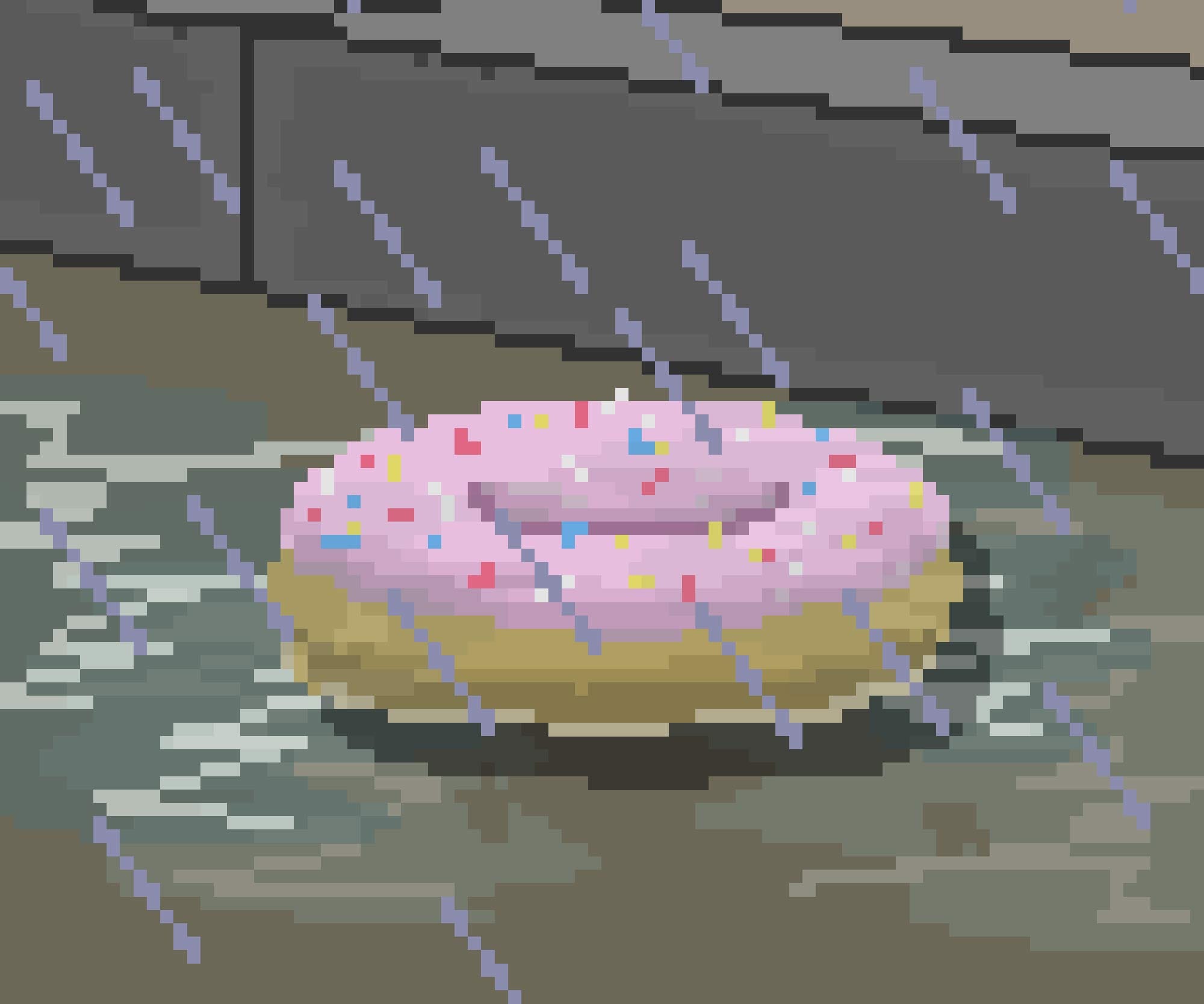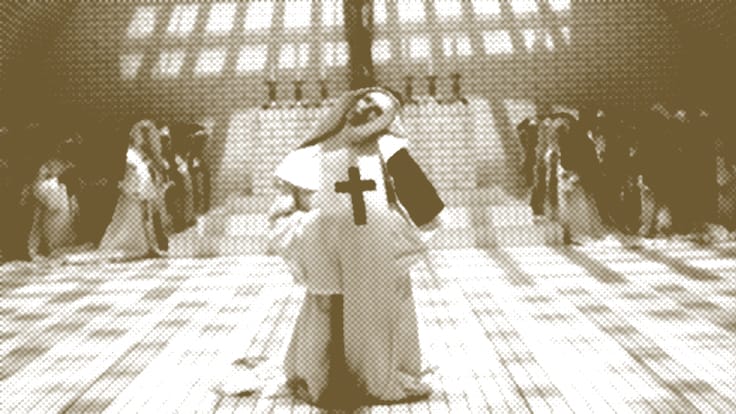The Mechanics of Dune

Spoilers, I suppose, for the first three Dune novels …
If I had one criticism for Frank Herbert’s Dune books it is that I don’t believe he had a clear plan where his stories were heading. I have quiet a few criticisms of Dune but they come from a good place: Dune is one of my favourite books, and Herbert’s ideas are truly original and compelling.
Dune Messiah and Children of Dune I didn’t enjoy so much, and I would say they don’t really add many new ideas to the world that the first book didn’t already introduce, and they are mostly marred by the above mentioned not-thinking-things-through. Children of Dune, however, isn’t a bad read; it’s just bloated with some dreary passages – or rather, it’s beef-swollen …
Feints within Feints within Feints …
Herbert’s writing style is a kind where major events are sometimes not described in detail or not even described at all, with the focus on the consequences of the event. For example, the two main battles in Dune aren’t given much coverage. Herbert is more interested in what happens next rather than the ins and outs of a battle campaign. But there are other events too that spring up without warning, like the Laza tigers appearing on Arrakis to attack Ghanima and Leto.
I suppose it’s a kind of journalistic style of writing, where it’s more about analysing after the event. It can sometimes feel slightly confusing however, like you’ve missed some of the action, or the importance of an event can feel a little bit diminished. In the second and third books, Herbert seems to rely on withholding information more to create narrative surprises.
The withholding of information is also used to deliberately disorientate as it switches between different people’s plans. Towards the end of Children of Dune new information is continually revealed to the reader about the different plans unfolding and each character’s alliances. What you think is happening is constantly put into question, and it is only through this slow release of information that you have a clear idea of what’s going on. It’s a style that starts misty, then over the course of the book comes to focus. Messiah uses this trick too.
It is like a literal telling of how prescience operates, which is kind of clever in a creative writing way, but it does hinder the narrative. Neither Dune Messiah or Children of Dune really get going until towards the end, and the stories lack drive because the reader isn’t led into the action through a build up on anticipation. Instead of being told what’s going on to keep you engaged, some of the book is opaque, so you do not always know why you should care.
It is strange Herbert decided to write this way because Dune mostly doesn’t do that. Much of the plot in Dune is revealed before it happens. And the reader is warned about some things, like Leto distancing himself from Jessica.There’s not so much an attempt to hide what is happening, to surprise the reader, but more of an explanation of how the events unfold. And I’d say this is one of the reasons Dune is the more successful book of the first three. Both Messiah and Children do improve as you learn more and things start making sense, it’s just there are times that lag because you’re not given much to work on.
Having said all that, one of the features of Herbert’s writing that I adore is how ideas are mentioned without being overly explained – as you would describe someone turning the TV on without the need to explain what television is. It normalises the ideas in the story, makes them commonplace. Although many ideas were clearly defined by Herbert, by keeping details scant in-story, it allows the reader to fill in the blanks, and this makes the Dune world feel vast and complex.
Un-Messiah
Even though Paul is the main character of Dune, there’s no feeling that he is particularly the hero of the story. In fact, When I first read Dune, I did ask myself: Why are the Atreides’ the good guys? The story is mainly a neutral telling of a rivalry between houses rather than one house deserving to be victorious. Sure the Atreides’ are double crossed, but they are still a ruling class, unelected rulers in a monarchical universe. The Harkonnens show they can be nasty, mostly to the Fremen, but the Atreides aren’t necessarily virtuous heroes.
There are elements of Dune that point to Paul being an imperfect Messiah, that his journey to supreme ruler is tainted with almost failures. The water of life puts him in a coma for weeks and he is mistaken for dead and could have had his water taken from him; Fenring mentions he could kill Paul but choses not to; Paul only wins the final battle with the help of a convenient storm that heads for the Emperor’s encampment. The path to Messiah-dom is littered with circumstance and chance, rather than it being inevitable.
Herbert doesn’t make a feature of these ideas, yet they are there in the book. It is not until Dune Messiah and Children of Dune that we learn more about Paul’s failures and criticisms of him. But this negative view of Paul Muad’Dib isn’t really a feature of the first book. There’s mention of the Jihad, with Paul unable to control what will happen, but it isn’t clearly said, or even strongly implied, that the ending should be read in a negative sense.
The ending of Dune isn’t really an ending in my opinion. It’s more of a culmination of events, then it stops. It makes me feel like Herbert did not know what to do with Paul. So the story just ends, with later details feeling a little bit like either after thoughts or ret cons. If the intention of Dune was to say the powerful don’t always have power, that absolute power is no power at all, that heroes are flawed, and that Messiahs happen by accident, not because of destiny … Herbert doesn’t make that intention obvious.
The novel ends with a kind of perplexing love story ending with Paul telling Channi he loves her after forcing a marriage with Irulan.
The Lady Jessica
The Bene Gesserit breeding programme is perhaps the single theme that permeates at least the first three books (I’ve not read the rest). Yet, even this isn’t something that’s clearly explained as a key feature of the story, and perhaps isn’t given the starring role it aught to have. Isn’t the breeding programme what Dune is truly about?
The first time I read Dune, it was Lady Jessica’s character and her abilities that made me want to keep reading. I love her ability of reading of nuance and her ability to persuade and even command people to obey her will.
The story begins with Jessica’s disobeying of the Bene Gesserit sisterhood and Helen Mohiam seems very sympathetic for her. I wonder if Herbert’s mistake was to make Dune Paul’s story, when it really should have been Jessica’s story, and really, it’s a tragedy of Jessica and her love for her Duke, and how her actions created Paul the Messiah. I think told through Jessica, the story of Dune would make more sense.
But as much as I love Jessica, and as much as she is seemingly one of the ‘good’ characters, she is actually part of a covert movement to deceive and control people. The scene with the Shadout Mapes is clear example of this. Jessica uses her knowledge of the Missionaria Protectiva to deceive and manipulate Mapes, and to give false credence to the Fremen messiah myth.
And this is for selfish reasons. It’s not for the Fremen’s sake (although their allegiance with the Atreides does lead them to liberation). It’s done so Jessica and the Atreides can have influence on, and support from, the native population.
I love the notion of the Bene Gesserits going to places and implanting religions amongst people so if ever they return, they can have an influence of the people. Again, this is an idea that often comes in passing in Herbert’s books, never explained in a lot of detail, not really made a feature. Really this should be presented as a covert manipulation technique; something dishonest, but it’s mainly told with the same neutrality Herbert uses throughout his books.
Jessica’s story could have been about her realisation of this dishonesty (something she was indoctrinated into from birth), and Dune could have been her rebellion and her attempt to break from the Bene Gesserit.
But it would never have been the case that Herbert would have written Dune as Jessica’s story. He is too fond of his male characters, something that is cemented in the way he writes about Leto over Ghanima. Too many of the women characters are written poorly in my opinion. Characters that could have been interesting – like Alia and Irulan – turn out to be weak minded, despite having training or born gifted, or they are simply overlooked and not given much of a part in the story.
Anti-Climatic Messiah
Dune Messiah is a bit of a dull book. It does provide some more detail that is missed off from the end of Dune but the main problem is that it is too thin on story and is largely filler with Paul moping around until it finally gets to the end. It does have some good features but there are some irritating elements, like Paul accepting the ghola even though he suspects it to be a trap. He accepts it but there is really no reason for him to do that.
The key feature of Messiah is that Paul turns out to be an anti-hero or a powerless all-powerful ruler. But making Paul into an anti-hero feels a little bit anti-climatic. You have a story about a character who rises to power only for it to be dull and stagnant and then you have the character blinded. You read a story about someone overcoming challenges, to become a supreme leader of everything, and then it turns out they’re the cause of the worst genocide in the universe and their life is torture.
It feels like a let down. The powerless all-powerful idea is interesting but I think it comes too suddenly. We are not treated to Paul’s ruling style and perhaps some of the good things he did. Instead of being treated to Paul’s special super powers, we’re treated to a trapped, lonely person who does very little, and is pretty much a fascist.
The story in Messiah begins with everything sour. And if Paul was always intended to be a terrible leader, it makes you question what the point of the first book actually was. Is it just a book with no hero, about terrible people doing terrible things to each other? One group of fascists defeat another group of fascists. Would it then not matter if the Emperor and the Baron were victorious instead? In fact, would it be better because fewer people would have died?
Super Powers
The problem is with Paul’s prescience: How the hell do you write a story from that? Since Paul knows every possible future, and every one as bad as the next, by creating this power, Herbet literally writes himself into a corner, creating a character who can’t do anything.
If characters know the future, why don’t they just come out and say it instead of talking in riddles? The answer to that is: because it will spoil the ending, so Prescience is adjusted so it’s not quite so accurate.
Prescience is defined more or less as the ability to know everything all the time, but later it seems to become ‘Well, sometimes they can’t see what’s going to happen.’ Messiah seems to be a book where Herbert just tries to get rid of Muad’Dib and his pesky all-knowing powers. Maybe it’s a ret-con, which is why it seems a little bit more certain about some ideas and less ambivalent than the first novel. But I think the main aim is to get Muad’Dib out of the way.
The later books come with a little more revision of Paul’s and Alia’s other powers. I don’t think Abomination wasn’t very well defined. When this is first used, I assumed I meant something exciting, like Alia was something the Bene Gesserits fear because she is just a little too powerful and knowledgable, and the term could mean she is an abomination only to the Bene Gesserits. It turns out that abomination means little more than possession – which she wasn’t when it was first used to describe her. It’s a bit of a let down. I feel it could have been much more.
The multiple personalities that a Reverend Mother inherits (and Alia inherited from within the womb) doesn’t seem to be too well explained. In Dune Alia can get inside Helen Mohiam’s mind like a sort of telepathic link. Yet this link doesn’t seem to exist between Alia and Jessica and the twins. I suppose it’s shut off or something.
The personalities are memories – inherited knowledge – but how much of a cross-sharing between the Reverend Mothers isn’t really explained
Fremen Victims
The colonial element in Dune is clear and this essay goes into some detail about that and about world politics at the time. It points out that the Atreides = the US, the Harkonnens = the Soviet Union, both fighting over control of the oil rich middle east. It also points out that none of the writing in Dune is written from the Fremen point of view.
Although this can be (and probably should be) read as a white saviour/coloniser saviour story, the lack of Fremen voice gives them an impenetrable mysteriousness which is nice. And while there is a white saviour element, the Fremen actually accept Paul as Fremen, implying that Fremen are not an ethnic group, but a tribe that allows new membership as long as you undergo their rites of passage.
The victimhood of the Fremen is hard to fathom. They are already victims of the the Bene Gessert’s Missionaria Protectiva with a fake religion that has been implanted, they are subjugated people used as a weapon of warfare, but later they become religious zealots committing genocides on other planets and converting people to the Muad’Dib religion.
I do feel bad for the Fremen a lot of the time. Their world continually changes when Paul becomes their leader. They come across like victims but sometimes without even knowing it, lamenting the old ways but doing nothing to get them back and accepting the rule of those who rule over them.
Journalism
The essay I linked to makes a point of Herbert’s contradictory concepts. I think a lot of these contradictions arise from Herbert’s slightly journalistic approach to writing. While, yes, I suppose, there are ‘good’ characters and ‘bad’ characters in the Dune books, they are mostly written about with a neutrality. Even the homophobia and ableism of the Baron is written with a flat, matter-of-factness. These things have been included in the novel, but they are not written with Dickensian rhetoric, laying it on thick that these are disgusting things.
There are many elements in Dune that are mentioned but don’t seem to have a clear reading, things that Herbert doesn’t make it clear what the intended reading might be. I’ve already mentioned the ending with Paul’s victory and ascension to messiah-dom being ambiguous. Other elements are things like Paul’s son Leto being killed; Jessica showing disapproval of Paul’s decisions at the end of the book; Paul’s fight with Feyd-Rautha; and Fenring’s refusal to kill Paul.
Paul even breaks an atomic peace treaty and uses nuclear weapons to claim victory. This is presented with a certain neutrality, written mainly in passing, not made into anything big. Many of these events appear in the story and either come to no particular conclusion, or they are not particularly focused on as an important occurrence.
While some people are designated ‘good’ and others ‘bad’, it seems to me like Herbert created each group, each planet, each people, and subscribed each one its own goals and influences. Then, when writing the story, each person or group behaves in the best way to achieve their goals, wrote in a neutral, journalistic way. This is why the Baron’s homophobia and ableism don’t come across with heavy importance; it’s why the Bene Gesserit’s breeding programme is only given a few passing mentions; and it is why the ending of Dune has slightly baffling ambiguity to it.
It is also that kind of journalist neutrality that makes certain events seem a little bit unfocused and without a purpose, but it is also that neutrality that means the future worlds and technology are never overly described and the Dune world feels so vast and mysterious. So on one level it is everything I love about Dune, but on another level it is why the second and third books sometimes drag a bit.
This neutrality is also why Dune lacks an impactful ending and I’d say that most good endings require the writer to have something to say, to pass judgement and take sides, but the ending of Dune doesn’t feel like Herbert is particularly committed to saying anything definite.
Who needs a good ending anyway? I think most books have weak endings. The pleasure in reading is usually the journey rather than the destination.
Over and out for now, guys!
xxx

